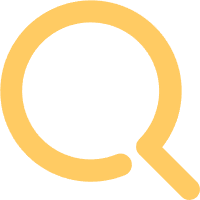

Here are 50 major events in world history that occurred on February 1st:
1. In 1587, Queen Elizabeth I of England signed the order to execute Mary, Queen of Scots.
2. In 1662, the Dutch East India Company signed the surrender document and held the surrender ceremony. Zheng Chenggong recovered Taiwan.
3. In 1727, Spain besieged Gibraltar, and Britain and Spain went to war without a declaration of war.
4. In 1743, the Turkey-Persia War began.
5. In 1790, the US Supreme Court held its first session at the Royal Exchange in New York City.
6. In 1793, France declared war on the Netherlands and Britain.
7. In 1796, the capital of Upper Canada was moved from Newark to York to stay away from the threat of the United States.
8. In 1835, Mauritius abolished slavery.
9. In 1865, US President Abraham Lincoln signed the 13th Amendment to the United States Constitution, officially abolishing slavery throughout the United States.
10. In 1884, the Oxford University Press in the UK published the first volume of the first edition of the Oxford English Dictionary.
11. In 1896, Giacomo Puccini's opera La Bohème premiered in Turin, Italy.
12. In 1901, the Qing government issued an edict to protect foreign missionaries and their religious activities.
13. In 1902, Emperor Guangxu issued an edict to allow intermarriage between the Han and Manchu ethnic groups and to select bannermen to study abroad.
14. In 1903, Germany, Italy, and Britain lifted the blockade of Venezuela.
15. In 1909, the International Opium Commission meeting, known as the International Anti-Drug Conference, was held in Shanghai, with 13 countries including the United States, Britain, France, and Germany participating.
16. In 1913, China participated in the first Far Eastern Games.
17. In 1917, New Youth published the first batch of vernacular poems in China, including 8 poems by Hu Shi.
18. In 1922, the Washington Conference approved the treaty restricting the use of submarine warfare and poison gas.
19. In 1923, railway workers on the Jinghan Railway held an inaugural meeting of the General Labor Union in Zhengzhou, which was forcefully blocked by warlord Wu Peifu.
20. In 1925, with the support of the Communist Party of China, the Guangdong Revolutionary Government launched its first Eastern Expedition to suppress Chen Jiongming.
21. In 1929, the Kuomintang government implemented the new customs tariff schedule.
22. In 1930, Deng Xiaoping led the 5th Battalion of the Guangxi Garrison in the Longzhou Uprising and was appointed Commander of the 8th Army of the Workers' and Peasants' Red Army.
23. In 1932, the National Bank of the Chinese Soviet Republic was established in Ruijin, Jiangxi, with Mao Zemin as its president.
24. In 1933, Wang Shusheng, the division commander of the 73rd Division of the Fourth Front Army of the Red Army, led his troops to capture Nanjiang in Sichuan.
25. In 1935, Wang Jingwei and Chiang Kai-shek jointly issued an order to strictly prohibit anti-Japanese activities.
26. In 1936, the Chinese National Liberation Vanguard was established in Beiping.
27. In 1940, the Communist Party of China determined its future anti-Japanese tasks.
28. In 1940, Charles de Gaulle, a World War I hero and French general, led the formation of the French Resistance.
29. In 1942, Mao Zedong delivered the report "Rectify the Party's Style of Work", and the Yan'an Rectification Movement was carried out.
30. In 1946, Trygve Lie of Norway was elected the first Secretary-General of the United Nations.
31. In 1946, the Central Committee of the Communist Party of China issued the "Instruction on the Current Situation and Tasks".
32. In 1947, the Political Bureau of the Central Committee of the Communist Party of China held an enlarged meeting, and Mao Zedong pointed out that the Chinese situation had developed to the eve of a new high tide of the people's great revolution.
33. In 1947, the Central Committee of the Communist Party of China declared that it would not recognize any foreign agreements of Chiang Kai-shek's regime.
34. In 1952, a public trial was held in Beijing, sentencing Song Degui, a former director of the Ministry of Public Security who embezzled 900 million yuan, to death.
35. In 1958, the United States launched the "Explorer 1" artificial earth satellite.
36. In 1958, Egypt and Syria announced their union to form the United Arab Republic.
37. In 1960, four African-American students began a sit-in protest at a lunch counter in Greensboro, North Carolina.
38. In 1968, during the Vietnam War, Saigon's police chief executed a Viet Cong officer with a pistol shot to the head.
39. In 1975, Deng Xiaoping began to preside over the daily work of the Central Committee.
40. In 1979, Ayatollah Ruhollah Khomeini received a tumultuous welcome in Tehran after nearly 15 years of exile.
41. In 1979, the People's Republic of China established diplomatic relations with Colombia.
42. In 1980, the Taiwan Railway Administration's Beihui Railway was opened to traffic and officially put into operation the next day.
43. In 1984, China and the Netherlands resumed diplomatic relations.
44. In 1986, China launched a practical communication and broadcasting satellite.
45. In 1986, the Law of the People's Republic of China on the Administration of the Exit and Entry of Citizens came into force.
46. In 1987, the Bank of China's RMB "Great Wall Credit Card" was first issued in Beijing.
47. In 1990, Lothar de Maizière, the chairman of the Council of Ministers of the German Democratic Republic, proposed to achieve German reunification in stages.
48. In 1995, the Advertising Law of the People's Republic of China came into force.
49. In 1998, the United States announced that it had the right to carry out military strikes against Iraq without warning.
50. In 2003, the US space shuttle "Columbia" disintegrated during landing.